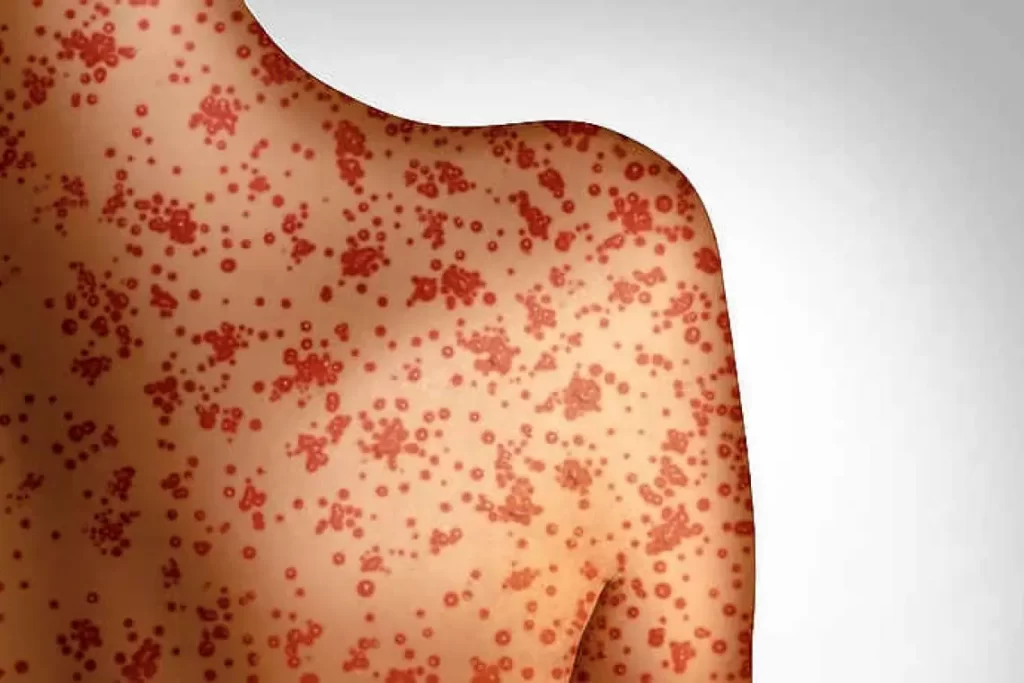Measles
Measles – If you follow the news, you know that there have been 100 cases of measles until early February. From January 1 to April 26, 2019, 704 individual cases of measles have been confirmed in 22 states. This is an increase of 78 cases from the previous week. The states that have reported cases to CDC are Arizona, California, Colorado, Connecticut, Florida, Georgia, Illinois, Indiana, Iowa, Kentucky, Maryland, Massachusetts, Michigan, Missouri, Nevada, New Hampshire, New Jersey, New York, Oregon, Texas, Tennessee, and Washington. This is the greatest number of cases reported in the U.S. since measles was declared eliminated in 2000.

Why the outbreak?
Measles – These outbreaks are linked to travelers who brought measles back from other countries. Most people who got measles were unvaccinated. There is an unfounded believe and movement of people that have chosen not to vaccinate their children.
What are Measles?
Measles is a viral childhood disease that is very contagious. It is so contagious that with every 100 people not immunized who meet a measles-infected patient, 90% will be infected. Measles is a serious disease that can be fatal for young children under 5 years of age.
Signs and symptoms?
The signs and symptoms of measles are first noted 10 to 14 days after exposure to the virus. The signs and symptoms of measles are usually fever, dry cough, runny nose, sore throat, conjunctivitis and skin rash consisting of large, flat spots that often flow into each other and begin in the face and down towards the body.
Complications od measles.
The complications of measles include infection of the ear, bronchitis, laryngitis or croup, pneumonia and encephalitis. Pneumonia is a common complication of measles. People with compromised immune systems can develop a particularly dangerous variety of pneumonia that sometimes is fatal. About 1 in 1,000 people with measles develop encephalitis, an inflammation of the brain that can cause vomiting, seizures and, rarely, coma or even death. Yes! Measles can cause death in some cases!
How long is it contagious?
It becomes contagious four days before the skin eruption and continues for four days after the eruption resolves. Since measles is so contagious, the patient would have to be isolated for 21 days. Besides the child, anyone who has had contact with the infected child or patient would also have to be isolated. That includes all the classmates, school mates, friends, parents and family members who came into contact with the measles.
Prevention is the key:
Vaccinate your child as scheduled.
Remember that measles is so contagious that with every 100 people not immunized who meet a measles-infected patient, 90%will be infected.
But if vaccinated – of every 100 people immunized less than 1% will catch the disease. That’s why is so important to immunize your children. Vaccines significantly reduced infant mortality.


